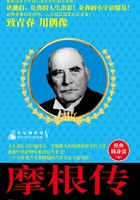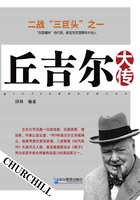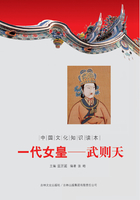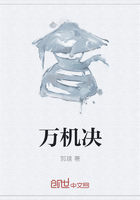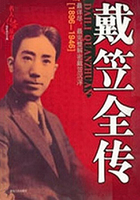BOOK I 1769-1800
1769-1783
Authentic date of Bonaparte's birth-His family ruined by the Jesuits-His taste for military amusements-Sham siege at the College of Brienne-The porter's wife and Napoleon-My intimacy with Bonaparte at college-His love for the mathematics, and his dislike of Latin-He defends Paoli and blames his father-He is ridiculed by his comrades-Ignorance of the monks-Distribution of prizes at Brienne-Madame de Montesson and the Duke of Orleans-Report of M. Keralio on Bonaparte-He leaves Brienne.
NAPOLEON BONAPARTE was born at Ajaccio, in Corsica, on the 15th of August 1769; the original orthography of his name was Buonaparte, but he suppressed the "u" during his first campaign in Italy. His motives for so doing were merely to render the spelling conformable with the pronunciation, and to abridge his signature. He signed Buonaparte even after the famous 13th Vendemiaire.
It has been affirmed that he was born in 1768, and that he represented himself to be a year younger than he really was. This is untrue. He always told me the 9th of August was his birthday, and, as I was born on the 9th of July 1769, our proximity of age served to strengthen our union and friendship when we were both at the Military College of Brienne.
The false and absurd charge of Bonaparte having misrepresented his age, is decidedly refuted by a note in the register of M. Berton, sub-principal of the College of Brienne, in which it is stated that M. Napoleon de Buonaparte, ecuyer, born in the city of Ajaccio, in Corsica, on the 15th of August 1769, left the Royal Military College of Brienne on the 17th October 1784.
The stories about his low extraction are alike devoid of foundation. His family was poor, and he was educated at the public expense, an advantage of which many honourable families availed themselves. A memorial addressed by his father, Charles Buonaparte, to the Minister of War states that his fortune had been reduced by the failure of some enterprise in which he had engaged, and by the injustice of the Jesuits, by whom he had been deprived of an inheritance. The object of this memorial was to solicit a sub-lieutenant's commission for Napoleon, who was then fourteen years of age, and to get Lucien entered a pupil of the Military College. The Minister wrote on the back of the memorial, "Give the usual answer, if there be a vacancy;" and on the margin are these words-"This gentleman has been informed that his request is inadmissible as long as his second son remains at the school of Brienne. Two brothers cannot be placed at the same time in the military schools." When Napoleon was fifteen he was sent to Paris until he should attain the requisite age for entering the army. Lucien was not received into the College of Brienne, at least not until his brother had quitted the Military School of Paris.
Bonaparte was undoubtedly a man of good family. I have seen an authentic account of his genealogy, which he obtained from Tuscany. A great deal has been said about the civil dissensions which forced his family to quit Italy and take refuge in Corsica. On this subject I shall say nothing.
Many and various accounts have been given of Bonaparte's youth.
-[The following interesting trait of Napoleon's childhood is derived from the 'Memoirs of the Duchesse d'Arbranes':-"He was one day accused by one of his sisters of having eaten a basketful of grapes, figs, and citrons, which had come from the garden of his uncle the Canon. None but those who were acquainted with the Bonaparte family can form any idea of the enormity of this offence. To eat fruit belonging to the uncle the Canon was infinitely more criminal than to eat grapes and figs which might be claimed by anybody else. An inquiry took place. Napoleon denied the fact, and was whipped. He was told that if he would beg pardon he should be forgiven. He protested that he was innocent, but he was not believed. If I recollect rightly, his mother was at the time on a visit to M. de Marbeuf, or some other friend. The result of Napoleon's obstinacy was, that he was kept three whole days on bread and cheese, and that cheese was not 'broccio'. However, he would not cry: he was dull, but not sulky. At length, on the fourth day of his punishment a little friend of Marianne Bonaparte returned from the country, and on hearing of Napoleon's disgrace she confessed that she and Marianne had eaten the fruit. It was now Marianne's turn to be punished. When Napoleon was asked why he had not accused his sister, he replied that though he suspected that she was guilty, yet out of consideration to her little friend, who had no share in the falsehood, he had said nothing. He was then only seven years of age" (vol. i. p. 9, edit. 1883).]
He has been described in terms of enthusiastic praise and exaggerated condemnation. It is ever thus with individuals who by talent or favourable circumstances are raised above their fellow-creatures. Bonaparte himself laughed at all the stories which were got up for the purpose of embellishing or blackening his character in early life. An anonymous publication, entitled the 'History of Napoleon Bonaparte', from his Birth to his last abdication, contains perhaps the greatest collection of false and ridiculous details about his boyhood. Among other things, it is stated that he fortified a garden to protect himself from the attacks of his comrades, who, a few lines lower down, are described as treating him with esteem and respect. I remember the circumstances which, probably, gave rise to the fabrication inserted in the work just mentioned; they were as follows.
During the winter of 1783-84, so memorable for heavy falls of snow, Napoleon was greatly at a loss for those retired walks and outdoor recreations in which he used to take much delight. He had no alternative but to mingle with his comrades, and, for exercise, to walk with them up and down a spacious hall. Napoleon, weary of this monotonous promenade, told his comrades that he thought they might amuse themselves much better with the snow, in the great courtyard, if they would get shovels and make hornworks, dig trenches, raise parapets, cavaliers, etc. "This being done," said he, "we may divide ourselves into sections, form a siege, and I will undertake to direct the attacks." The proposal, which was received with enthusiasm, was immediately put into execution. This little sham war was carried on for the space of a fortnight, and did not cease until a quantity of gravel and small stones having got mixed with the snow of which we made our bullets, many of the combatants, besiegers as well as besieged, were seriously wounded. I well remember that I was one of the worst sufferers from this sort of grapeshot fire.
It is almost unnecessary to contradict the story about the ascent in the balloon. It is now very well known that the hero of that headlong adventure was not young Bonaparte, as has been alleged, but one of his comrades, Dudont de Chambon, who was somewhat eccentric. Of this his subsequent conduct afforded sufficient proofs.
Bonaparte's mind was directed to objects of a totally different kind. He turned his attention to political science. During some of his vacations he enjoyed the society of the Abby Raynal, who used to converse with him on government, legislation, commercial relations, etc.
On festival days, when the inhabitants of Brienne were admitted to our amusements, posts were established for the maintenance of order. Nobody was permitted to enter the interior of the building without a card signed by the principal, or vice-principal. The rank of officers or sub-officers was conferred according to merit; and Bonaparte one day had the command of a post, when the following little adventure occurred, which affords an instance of his decision of character.
The wife of the porter of the school,
-[This woman, named Haute, was afterwards placed at Malmaison, with her husband. They both died as concierges of Malmaison. This shows that Napoleon had a memory.-Bourrienne.]
who was very well known, because she used to sell milk, fruit, etc., to the pupils, presented herself one Saint Louis day for admittance to the representation of the 'Death of Caesar, corrected', in which I was to perform the part of Brutus. As the woman had no ticket, and insisted on being admitted without one, some disturbance arose. The serjeant of the post reported the matter to the officer, Napoleon Bonaparte, who in an imperious tone of voice exclaimed: "Send away that woman, who comes here with her camp impudence." This was in 1782.
Bonaparte and I were eight years of, age when our friendship commenced. It speedily became very intimate, for there was a certain sympathy of heart between us. I enjoyed this friendship and intimacy until 1784, when he was transferred from the Military College of Brienne to that of Paris. I was one among those of his youthful comrades who could best accommodate themselves to his stern character. His natural reserve, his disposition to meditate on the conquest of Corsica, and the impressions he had received in childhood respecting the misfortunes of his country and his family, led him to seek retirement, and rendered his general demeanour, though in appearance only, somewhat unpleasing. Our equality of age brought us together in the classes of the mathematics and 'belles lettres'. His ardent wish to acquire knowledge was remarkable from the very commencement of his studies. When he first came to the college he spoke only the Corsican dialect, and the Sieur Dupuis,
-[He afterwards filled the post of librarian to Napoleon at Malmaison.]
who was vice-principal before Father Berton, gave him instructions in the French language. In this he made such rapid progress that in a short time he commenced the first rudiments of Latin. But to this study he evinced such a repugnance that at the age of fifteen he was not out of the fourth class. There I left him very speedily; but I could never get before him in the mathematical class, in which he was undoubtedly the cleverest lad at the college. I used sometimes to help him with his Latin themes and versions in return for the aid he afforded me in the solution of problems, at which he evinced a degree of readiness and facility which perfectly astonished me.
When at Brienne, Bonaparte was remarkable for the dark color of his complexion (which, subsequently, the climate of France somewhat changed), for his piercing and scrutinising glance, and for the style of his conversation both with his masters and comrades. His conversation almost always bore the appearance of ill-humour, and he was certainly not very amiable. This I attribute to the misfortunes his family had sustained and the impressions made on his mind by the conquest of his country.
The pupils were invited by turns to dine with Father Berton, the head of the school. One day, it being Bonaparte's turn to enjoy this indulgence, some of the professors who were at table designedly made some disrespectful remarks on Paoli, of whom they knew the young Corsican was an enthusiastic admirer. "Paoli," observed Bonaparte, "was a great man; he loved his country; and I will never forgive my father, who was his adjutant, for having concurred in the union of Corsica with France. He ought to have followed Paoli's fortune, and have fallen with him."
-[The Duchesse d'Abrantes, speaking of the personal characteristics of Bonaparte in youth and manhood, says, "Saveria told me that Napoleon was never a pretty boy, as Joseph was, for example: his head always appeared too large for his body, a defect common to the Bonaparte family. When Napoleon grew up, the peculiar charm of his countenance lay in his eye, especially in the mild expression it assumed in his moments of kindness. His anger, to be sure, was frightful, and though I am no coward, I never could look at him in his fits of rage without shuddering. Though his smile was captivating, yet the expression of his mouth when disdainful or angry could scarcely be seen without terror. But that forehead which seemed formed to bear the crowns of a whole world; those hands, of which the most coquettish women might have been vain, and whose white skin covered muscles of iron; in short, of all that personal beauty which distinguished Napoleon as a young man, no traces were discernible in the boy. Saveria spoke truly when she said, that of all the children of Signora Laetitia, the Emperor was the one from whom future greatness was least to be prognosticated" (vol. i. p. 10, edit. 1883)]
Generally speaking, Bonaparte was not much liked by his comrades at Brienne. He was not social with them, and rarely took part in their amusements. His country's recent submission to France always caused in his mind a painful feeling, which estranged him from his schoolfellows. I, however, was almost his constant companion. During play-hours he used to withdraw to the library, where he-read with deep interest works of history, particularly Polybius and Plutarch. He was also fond of Arrianus, but did not care much for Quintus Gurtius. I often went off to play with my comrades, and left him by himself in the library.
The temper of the young Corsican was not improved by the teasing he frequently experienced from his comrades, who were fond of ridiculing him about his Christian name Napoleon and his country. He often said to me, "I will do these French all the mischief I can;" and when I tried to pacify him he would say, "But you do not ridicule me; you like me."
Father Patrauld, our mathematical professor, was much attached to Bonaparte. He was justly proud of him as a pupil. The other professors, in whose classes he was not distinguished, took little notice of him. He had no taste for the study of languages, polite literature, or the arts. As there were no indications of his ever becoming a scholar, the pedants of the establishment were inclined to think him stupid. His superior intelligence was, however, sufficiently perceptible, even through the reserve under which it was veiled. If the monks to whom the superintendence of the establishment was confided had understood the organisation of his mind, if they had engaged more able mathematical professors, or if we had had any incitement to the study of chemistry, natural philosophy, astronomy, etc., I am convinced that Bonaparte would have pursued these sciences with all the genius and spirit of investigation which he displayed in a career, more brilliant it is true, but less useful to mankind. Unfortunately, the monks did not perceive this, and were too poor to pay for good masters. However, after Bonaparte left the college they found it necessary to engage two professors from Paris, otherwise the college would have fallen to nothing. These two new professors, MM. Durfort and Desponts, finished my education; and I regretted that they did not come sooner. The often-repeated assertion of Bonaparte having received a careful education at Brienne is therefore untrue. The monks were incapable of giving it him; and, for my own part, I must confess that the extended information of the present day is to me a painful contrast with the limited course of education I received at the Military College. It is only surprising that the establishment should have produced a single able man.
Though Bonaparte had no reason to be satisfied with the treatment he received from his comrades, yet he was above complaining of it; and when he had the supervision of any duty which they infringed, he would rather go to prison than denounce the criminals.
I was one day his accomplice in omitting to enforce a duty which we were appointed to supervise. He prevailed on me to accompany him to prison, where we remained three days. We suffered this sort of punishment several times, but with less severity.
In 1783 the Duke of Orleans and Madame de Montesson visited Brienne; and, for upwards of a month, the magnificent chateau of the Comte de Brienne was a Versailles in miniature. The series of brilliant entertainments which were given to the august travellers made them almost forget the royal magnificence they had left behind them.
The Prince and Madame de Montesson expressed a wish to preside at the distribution of the prizes of our college. Bonaparte and I won the prizes in the class of mathematics, which, as I have already observed, was the branch of study to which he confined his attention, and in which he excelled. When I was called up for the seventh time Madame de Montesson said to my mother, who had come from Sens to be present at the distribution, "Pray, madame, crown your son this time; my hands are a-weary."
There was an inspector of the military schools, whose business it was to make an annual report on each pupil, whether educated at the public expense or paid for by his family. I copied from the report of 1784 a note which was probably obtained surreptitiously from the War Office. I wanted to purchase the manuscript, but Louis Bonaparte bought it. I did not make a copy of the note which related to myself, because I should naturally have felt diffident in making any use of it. It would, however, have served to show how time and circumstances frequently reversed the distinctions which arise at school or college. Judging from the reports of the inspector of military schools, young Bonaparte was not, of all the pupils at Brienne in 1784, the one most calculated to excite prognostics of future greatness and glory.
The note to which I have just alluded, and which was written by M. de Kerralio, then inspector of the military schools, describes Bonaparte in the following terms:
INSPECTION OF MILITARY SCHOOLS 1784.
REPORT MADE FOR HIS MAJESTY BY M. DE KERALIO
M. de Buonaparte (Napoleon), born 15th August 1769, height 4 feet 10 inches 10 lines, is in the fourth class, has a good constitution, excellent health, character obedient, upright, grateful, conduct very regular; has been always distinguished by his application to mathematics. He knows history and geography very passably. He is not well up in ornamental studies or in Latin in which he is only in the fourth class. He will be an excellent sailor. He deserves to be passed on to the Military School of Paris.
Father Berton, however, opposed Bonaparte's removal to Paris, because he had not passed through the fourth Latin class, and the regulations required that he should be in the third. I was informed by the vice-principal that a report relative to Napoleon was sent from the College of Brienne to that of Paris, in which he was described as being domineering, imperious, and obstinate.
-[Napoleon remained upwards of five years at Brienne, from April 1779 till the latter end of 1784. In 1783 the Chevalier Keralio, sub-inspector of the military schools, selected him to pass the year following to the military school at Paris, to which three of the best scholars were annually sent from each of the twelve provincial military schools of France. It is curious as well as satisfactory to know the opinion at this time entertained of him by those who were the best qualified to judge. His old master, Le Guille, professor of history at Paris, boasted that, in a list of the different scholars, he had predicted his pupil's subsequent career. In fact, to the name of Bonaparte the following note is added: "a Corsican by birth and character-he will do something great, if circumstances favour him." Menge was his instructor in geometry, who also entertained a high opinion of him. M. Bauer, his German master, was the only one who saw nothing in him, and was surprised at being told he was undergoing his examination for the artillery. -Hazlitt.]
I knew Bonaparte well; and I think M. de Keralio's report of him was exceedingly just, except, perhaps, that he might have said he was very well as to his progress in history and geography, and very backward in Latin; but certainly nothing indicated the probability of his being an excellent seaman. He himself had no thought of the navy.
-[Bourrienne is certainly wrong as to Bonaparte having no thought of the navy. In a letter of 1784 to the Minister of War his father says of Napoleon that, "following the advice of the Comte de Marbeuf, he has turned his studies towards the navy; and so well has he succeeded that he was intended by M. de Keralio for the school of Paris, and afterwards for the department of Toulon. The retirement of the former professor (Keralio) has changed the fate of my son." It was only on the failure of his intention to get into the navy that his father, on 15th July 1784 applied for permission for him enter the artillery; Napoleon having a horror of the infantry, where he said they did nothing. It was on the success of this application that he was allowed to enter the school of Parts (Iung, tome i. pp. 91-103). Oddly enough, in later years, on 30th August 1792, having just succeeded in getting himself reinstated as captain after his absence, overstaying leave, he applied to pass into the Artillerie de la Marine. "The application was judged to be simply absurd, and was filed with this note, 'S. R.' ('sans reponse')" (Iung, tome ii. p. 201)]
In consequence of M. de Keralio's report, Bonaparte was transferred to the Military College of Paris, along with MM. Montarby de Dampierre, de Castres, de Comminges, and de Laugier de Bellecourt, who were all, like him, educated at the public expense, and all, at least, as favorably reported.
What could have induced Sir Walter Scott to say that Bonaparte was the pride of the college, that our mathematical master was exceedingly fond of him, and that the other professors in the different sciences had equal reason to be satisfied with him? What I have above stated, together with the report of M. de Keralio, bear evidence of his backwardness in almost every branch of education except mathematics. Neither was it, as Sir Walter affirms, his precocious progress in mathematics that occasioned him to be removed to Paris. He had attained the proper age, and the report of him was favourable, therefore he was very naturally included among the number of the five who were chosen in 1784.
In a biographical account of Bonaparte I have read the following anecdote:-When he was fourteen years of age he happened to be at a party where some one pronounced a high eulogium on Turenne; and a lady in the company observed that he certainly was a great man, but that she should like him better if he had not burned the Palatinate. "What signifies that," replied Bonaparte, "if it was necessary to the object he had in view?"
This is either an anachronism or a mere fabrication. Bonaparte was fourteen in the year 1783. He was then at Brienne, where certainly he did not go into company, and least of all the company of ladies.


